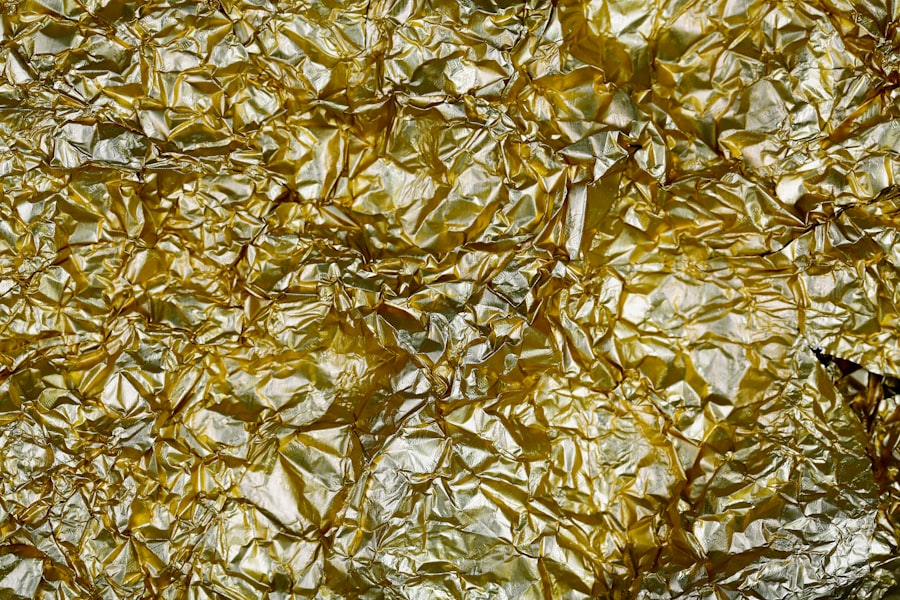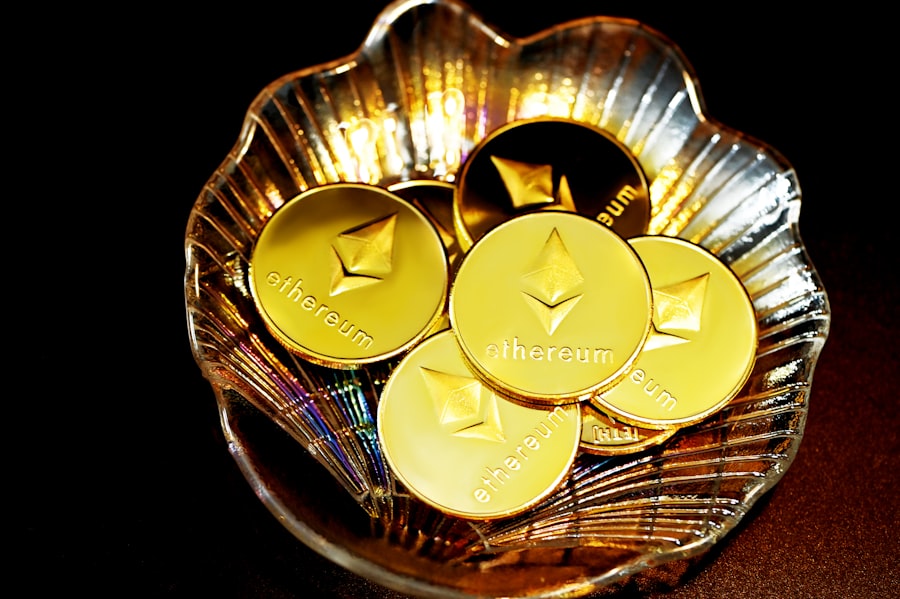In recent years, Russia has emerged as a significant player in Mali’s gold industry, a sector that is crucial to the West African nation’s economy. The influx of Russian investment and expertise has sparked interest and concern among various stakeholders, including local communities, international observers, and foreign governments. As Mali grapples with political instability and security challenges, Russia’s involvement raises questions about the implications for the country’s economic development and geopolitical landscape.
This article delves into the historical context of Mali’s gold industry, the motivations behind Russia’s engagement, and the potential consequences for both Mali and the broader region. The gold industry in Mali is not merely an economic endeavor; it is intertwined with the nation’s identity and aspirations.
The increasing presence of Russian companies in this sector signals a shift in the dynamics of foreign investment in Mali, prompting discussions about the benefits and drawbacks of such involvement. Understanding the nuances of this relationship is essential for grasping the future trajectory of Mali’s gold industry and its implications for national sovereignty and development.
Key Takeaways
- Russia has increasingly engaged in Mali’s gold industry, seeking economic and political influence.
- Mali’s gold sector is historically significant and vital to its economy.
- Russian companies have made substantial investments, impacting local communities and Mali’s economy.
- Russia’s involvement faces challenges, controversies, and international scrutiny.
- Mali’s government and other foreign powers are responding to Russia’s growing presence, shaping future developments.
Historical background of Mali’s gold industry and its significance
Mali’s gold industry has a rich history that dates back centuries, with the region being part of the ancient trans-Saharan trade routes. Gold has been a symbol of wealth and power in Mali since the days of the legendary King Mansa Musa, who ruled during the 14th century and is often regarded as one of the richest individuals in history. The discovery of gold deposits in the late 20th century transformed Mali into one of Africa’s leading gold producers, with mining becoming a vital source of revenue for the government and local communities.
The significance of gold mining in Mali extends beyond mere economic metrics; it plays a crucial role in social structures and local livelihoods. Many communities depend on artisanal mining for their survival, while larger mining operations contribute significantly to national GDP. However, this reliance on gold has also led to challenges, including environmental degradation, labor disputes, and conflicts over land rights.
As such, the historical context of Mali’s gold industry is essential for understanding the current dynamics at play, particularly in light of Russia’s growing involvement.
Russia’s economic and political interests in Mali

Russia’s interest in Mali’s gold industry is driven by a combination of economic ambitions and geopolitical strategies. As global demand for gold continues to rise, Russia seeks to diversify its investments and secure access to valuable resources. The country’s engagement in Mali aligns with its broader goal of expanding its influence in Africa, where it aims to counterbalance Western dominance and establish itself as a key player in resource-rich regions.
By forging partnerships with Malian authorities, Russia positions itself as a reliable ally amid the country’s ongoing security challenges. This relationship allows Russia to enhance its geopolitical standing while providing military support and expertise to a nation grappling with insurgency and instability.
The intertwining of economic interests with political alliances underscores the complexity of Russia’s role in Mali’s gold industry.
Russian companies and investments in Mali’s gold industry
| Company Name | Type of Investment | Investment Amount (Million USD) | Year of Entry | Gold Production Contribution (Metric Tons) | Key Projects |
|---|---|---|---|---|---|
| Polymetal International | Mining Operations | 150 | 2018 | 2.5 | Syama Gold Mine |
| Nordgold | Exploration and Mining | 120 | 2016 | 3.0 | Bissa Gold Project |
| Russian Direct Investment Fund (RDIF) | Equity Investment | 80 | 2019 | — | Joint Ventures with local miners |
| Alrosa | Mining Equipment Supply | 50 | 2020 | — | Equipment modernization projects |
Several Russian companies have made significant investments in Mali’s gold sector, reflecting the country’s commitment to tapping into this lucrative market. Notable players include the Russian mining company, which has established operations in various regions known for their rich gold deposits. These companies bring not only capital but also technical expertise that can enhance mining efficiency and productivity.
The investments made by Russian firms have been met with mixed reactions from local communities and stakeholders. On one hand, these investments promise job creation and infrastructure development; on the other hand, concerns about environmental impacts and labor practices have emerged. The presence of Russian companies has also led to discussions about transparency and governance within the mining sector, as local populations seek assurances that they will benefit from the resources extracted from their land.
Impact of Russia’s involvement on Mali’s economy and local communities
The impact of Russia’s involvement in Mali’s gold industry is multifaceted, with both positive and negative implications for the economy and local communities. On one hand, increased investment can lead to job creation, infrastructure development, and enhanced revenue generation for the government. As Russian companies establish operations, they often bring new technologies and practices that can improve mining efficiency, potentially leading to higher yields.
However, the benefits are not uniformly distributed. Local communities may find themselves marginalized as foreign companies take control of lucrative resources. Issues such as land rights disputes, environmental degradation, and inadequate compensation for displaced populations have surfaced as significant concerns.
The challenge lies in ensuring that the economic benefits derived from gold mining translate into tangible improvements for local communities while safeguarding their rights and livelihoods.
Challenges and controversies surrounding Russia’s influence in Mali’s gold industry

Russia’s growing influence in Mali’s gold industry is not without its challenges and controversies. One major concern revolves around governance and transparency within the sector. The influx of foreign investment raises questions about regulatory frameworks and accountability mechanisms that are essential for ensuring fair practices.
Critics argue that without robust oversight, there is a risk of corruption and exploitation, undermining the potential benefits for Malians. Additionally, environmental issues pose significant challenges as mining activities expand. The extraction process can lead to deforestation, water pollution, and soil degradation, impacting local ecosystems and communities that rely on these natural resources for their livelihoods.
The balance between economic development and environmental sustainability remains a contentious issue as stakeholders navigate the complexities of resource management.
Mali’s government’s response to Russia’s growing influence
In response to Russia’s increasing presence in its gold industry, the Malian government has adopted a pragmatic approach aimed at maximizing benefits while addressing potential risks. Recognizing the need for foreign investment to bolster its economy, Mali has welcomed Russian companies but has also emphasized the importance of adhering to local laws and regulations. The government has sought to establish frameworks that promote transparency and accountability within the mining sector.
By engaging with Russian investors through formal agreements, Mali aims to ensure that local communities are included in decision-making processes related to resource extraction. This approach reflects a desire to balance economic interests with social responsibility, although challenges remain in effectively implementing these policies.
International reactions and concerns about Russia’s role in Mali’s gold industry
The international community has closely monitored Russia’s involvement in Mali’s gold industry, raising concerns about potential geopolitical ramifications. Western nations have expressed apprehension regarding Russia’s expanding influence in Africa, viewing it as a challenge to their own interests on the continent. The presence of Russian companies is often perceived through a lens of competition for resources and strategic alliances.
Human rights organizations have also voiced concerns about the implications of foreign investment on local populations. Reports of labor abuses, environmental degradation, and inadequate compensation have prompted calls for greater scrutiny of mining practices. The international response underscores the need for a balanced approach that prioritizes human rights while fostering economic development.
Potential future developments and implications of Russia’s involvement
As Russia continues to deepen its engagement in Mali’s gold industry, several potential developments could shape the future landscape. One possibility is an expansion of Russian investments beyond gold mining into other sectors such as infrastructure or agriculture, further entrenching Russia’s role in Mali’s economy. This diversification could lead to increased economic interdependence between the two nations.
However, challenges remain that could impact this trajectory. Political instability within Mali or shifts in international relations could alter the dynamics of foreign investment. Additionally, growing scrutiny from international organizations may prompt calls for reforms within the mining sector that could affect Russian operations.
The interplay between these factors will be crucial in determining how Russia’s involvement evolves over time.
Comparison with other foreign powers’ involvement in Mali’s gold industry
Russia’s engagement in Mali’s gold industry can be compared to that of other foreign powers such as China and Western nations. China has established itself as a dominant player in Africa’s mining sector through substantial investments and infrastructure projects aimed at securing access to resources. In contrast, Western countries often emphasize corporate social responsibility and sustainable practices but may face criticism for their historical legacies in Africa.
The differences in approach highlight varying strategies employed by foreign powers seeking to capitalize on Africa’s rich resources. While Russia’s focus appears more aligned with immediate economic gains and political alliances, other nations may prioritize long-term partnerships based on ethical considerations. This comparison underscores the complexity of foreign involvement in Mali’s gold industry and raises questions about which models will ultimately yield sustainable benefits for local communities.
Conclusion and outlook for the future of Russia’s influence in Mali’s gold industry
In conclusion, Russia’s growing influence in Mali’s gold industry presents both opportunities and challenges for the West African nation. As investments pour into this vital sector, there is potential for economic growth and development; however, concerns regarding governance, environmental sustainability, and social equity must be addressed to ensure that local communities benefit from these resources. Looking ahead, the trajectory of Russia’s involvement will depend on various factors including domestic political stability within Mali, international relations dynamics, and responses from local populations advocating for their rights.
As stakeholders navigate this complex landscape, it will be essential to strike a balance between attracting foreign investment while safeguarding the interests of Malian citizens. The future of Russia’s influence in Mali’s gold industry remains uncertain but holds significant implications for both nations as they chart their paths forward amidst evolving global dynamics.
Russia’s growing influence in Mali, particularly in the gold mining sector, has raised concerns among international observers. The country’s strategic partnerships and investments in Mali’s natural resources are seen as part of a broader effort to expand its geopolitical reach in Africa. For a deeper understanding of this topic, you can read more in the article available at this link.
WATCH THIS! The Secret War for Africa’s Gold: How Private Armies Fund Global Conflict
FAQs
What is the nature of Russia’s involvement in Mali’s gold sector?
Russia’s involvement in Mali’s gold sector primarily includes investments by Russian companies in gold mining operations, as well as political and economic partnerships that facilitate access to Mali’s gold resources.
Why is Mali’s gold important to Russia?
Mali is one of Africa’s largest gold producers, and its gold reserves are significant for Russia as a source of valuable natural resources, which can support Russia’s economic interests and strengthen its geopolitical influence in West Africa.
How does Russia’s influence in Mali’s gold industry affect the local economy?
Russian investments can bring capital, technology, and expertise to Mali’s gold mining sector, potentially boosting production and creating jobs. However, concerns exist about the equitable distribution of benefits and the impact on local communities and the environment.
Are there any security implications related to Russia’s presence in Mali’s gold mining?
Yes, Russia’s involvement in Mali’s gold sector is sometimes linked to broader security cooperation, including military support and private security firms, which can influence regional stability and the dynamics of conflict in Mali.
How does Russia’s influence in Mali compare to other foreign actors?
Russia is one of several foreign actors involved in Mali’s gold industry, alongside countries like China, France, and Canada. Russia’s approach often combines economic investment with political and security engagement, distinguishing its role in the region.
What are the potential risks of Russia’s influence in Mali’s gold sector?
Potential risks include increased geopolitical competition, exploitation of resources without adequate local benefits, environmental degradation, and the entanglement of resource extraction with security and political interests that may affect Mali’s sovereignty.
Is Russia’s involvement in Mali’s gold industry officially supported by the Malian government?
Yes, the Malian government has engaged with Russian entities and welcomed investment and cooperation in the gold sector as part of broader efforts to develop the country’s natural resources and strengthen international partnerships.
How does Russia’s influence in Mali’s gold sector impact global gold markets?
While Mali’s gold production contributes to global supply, Russia’s involvement in Mali is relatively small in the context of the global gold market but can influence regional dynamics and trade flows in West Africa.




